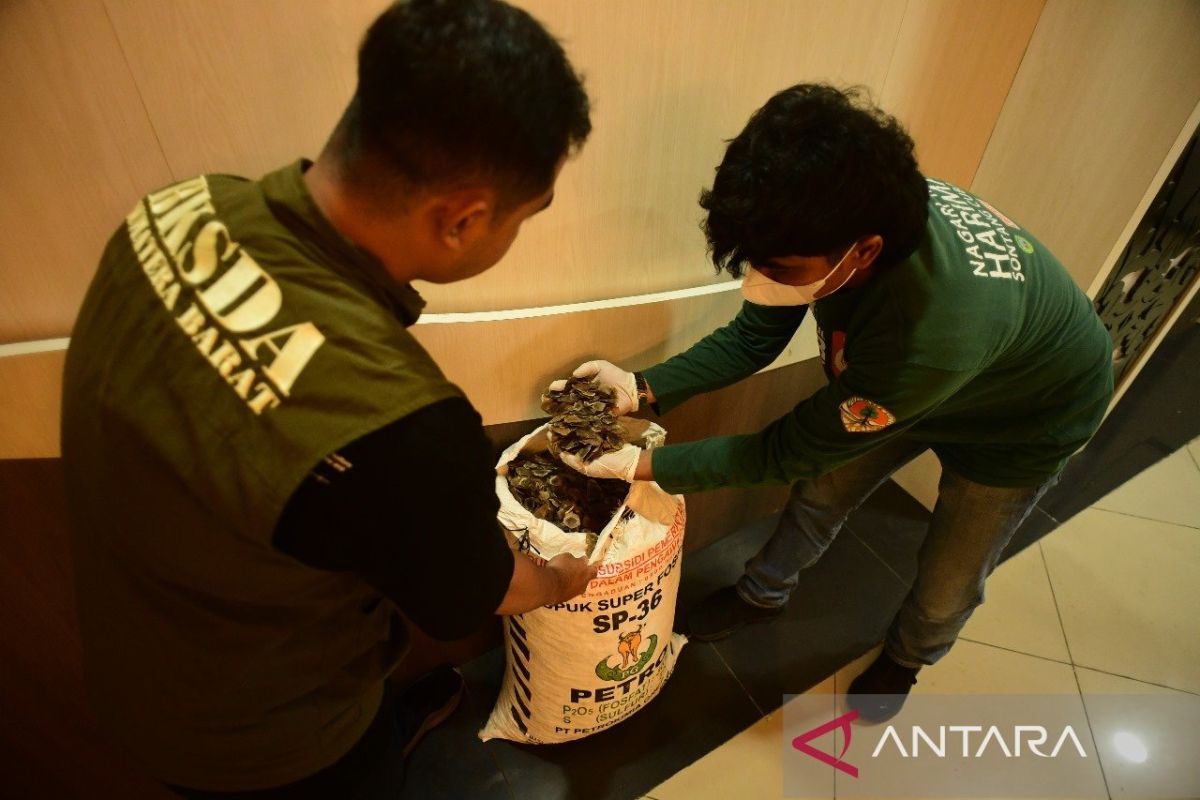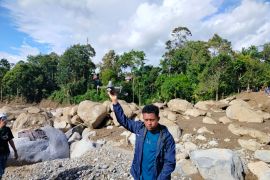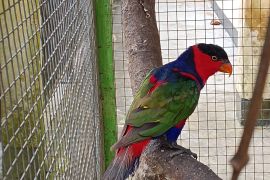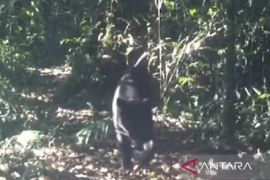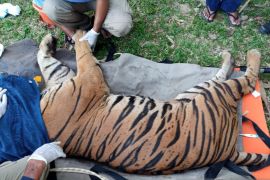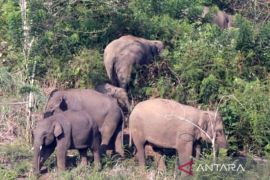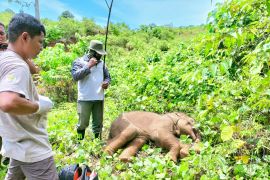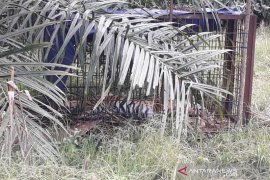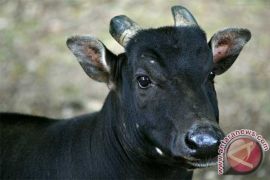A joint team from the West Sumatra Natural Resources Conservation Agency (BKSDA) and regional police made the arrests in Padang during a raid targeting traffickers dealing in body parts from protected species.
“Alongside the seizure of pangolin scales, we arrested three suspects believed to be part of a broader trafficking network dealing in Appendix I-protected wildlife,” BKSDA head Hartono told reporters.
Authorities confiscated a sack of pangolin scales weighing more than 25 kg and a vehicle used to transport the contraband. The suspects and evidence are now in police custody for further investigation into the smuggling network.
Hartono said the suspects are believed to have illegally possessed, stored, transported, and traded parts of protected animals—violations of Indonesia’s conservation laws, including Article 40A of the 2024 Law on Biodiversity Conservation.
They also face charges under a 1999 government regulation and a 2018 Environment Ministry decree on protected species, which carry prison terms of three to 15 years.
Pangolins (Manis javanica), scaly mammals native to Southeast Asia, are critically endangered, according to the International Union for Conservation of Nature (IUCN) Red List.
Their scales are highly prized on black markets for use in traditional medicine, fueling illegal hunting and trafficking.
Hartono said the seized scales likely came from over 100 pangolins, as one kilogram typically requires three to four animals.
He added that the joint team is still tracking other suspects, and authorities are increasing surveillance and enforcement to curb the illegal wildlife trade.
“We urge the public to support wildlife protection efforts by rejecting illegal trade and reporting any sightings of protected animals,” he said.
Meanwhile, according to WWF-Indonesia, the Sunda pangolin remains one of the most heavily trafficked mammals in Southeast Asia, targeted for its meat, scales, and other body parts.
Data from the conservation group’s official website shows the species is hunted and illegally traded for various uses, particularly in traditional Chinese medicine, where its scales, tongue, skin, and meat are believed to have healing properties.
“Pangolin body parts are consumed as traditional remedies and exotic delicacies. In some circles, eating pangolin meat is considered prestigious,” WWF-Indonesia stated.
In addition to medicinal use, pangolin scales have also been illegally processed into raw materials for narcotics and were previously used in the fashion industry for luxury items such as handbags, wallets, and accessories.
Related news: Indonesia cracks down on illegal trade of nicobar pigeons in Gowa
Related news: Indonesia develops national red list to protect endangered wildlife
Translator: M.Zulfikar, Rahmad Nasution
Editor: Aditya Eko Sigit Wicaksono
Copyright © ANTARA 2025
